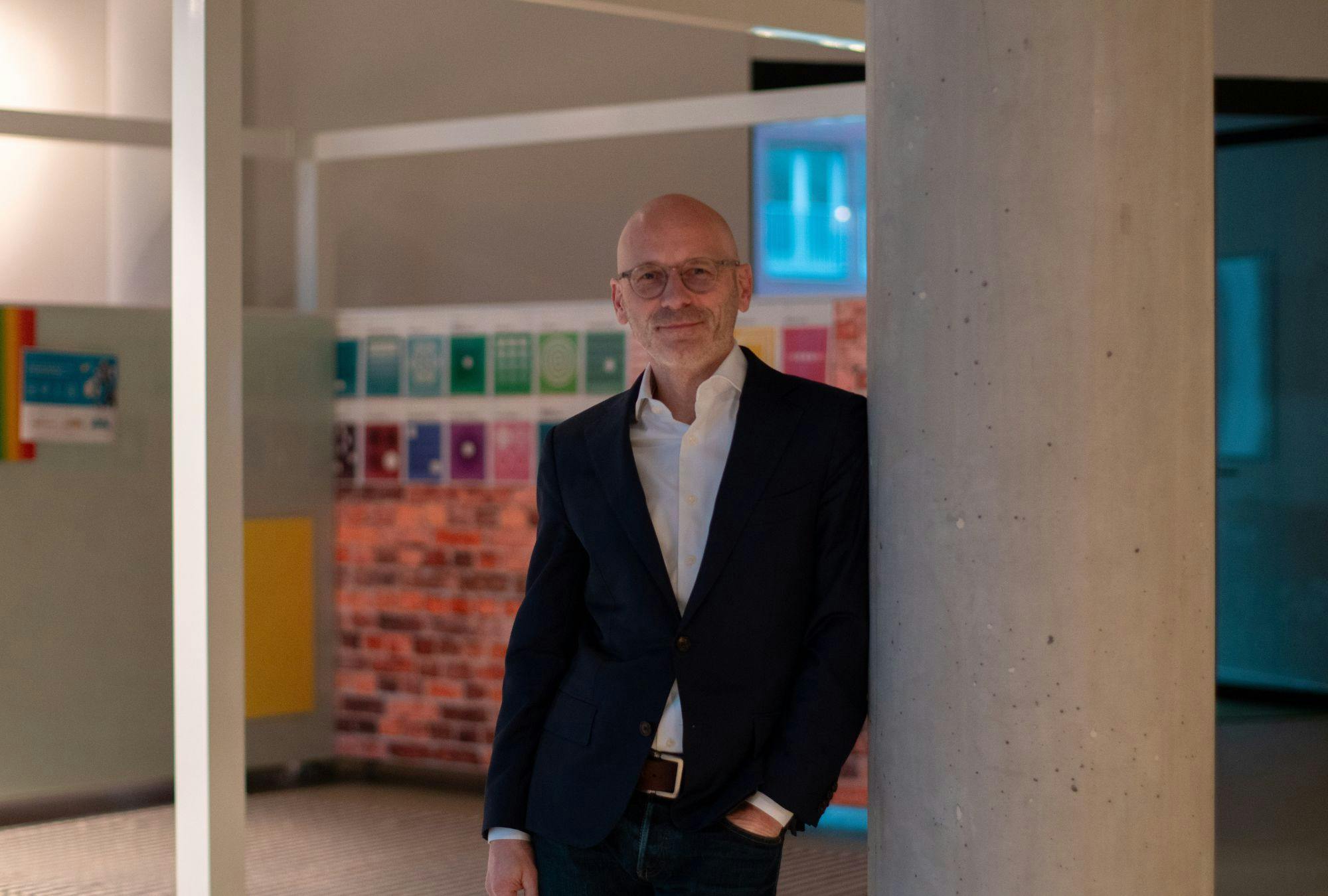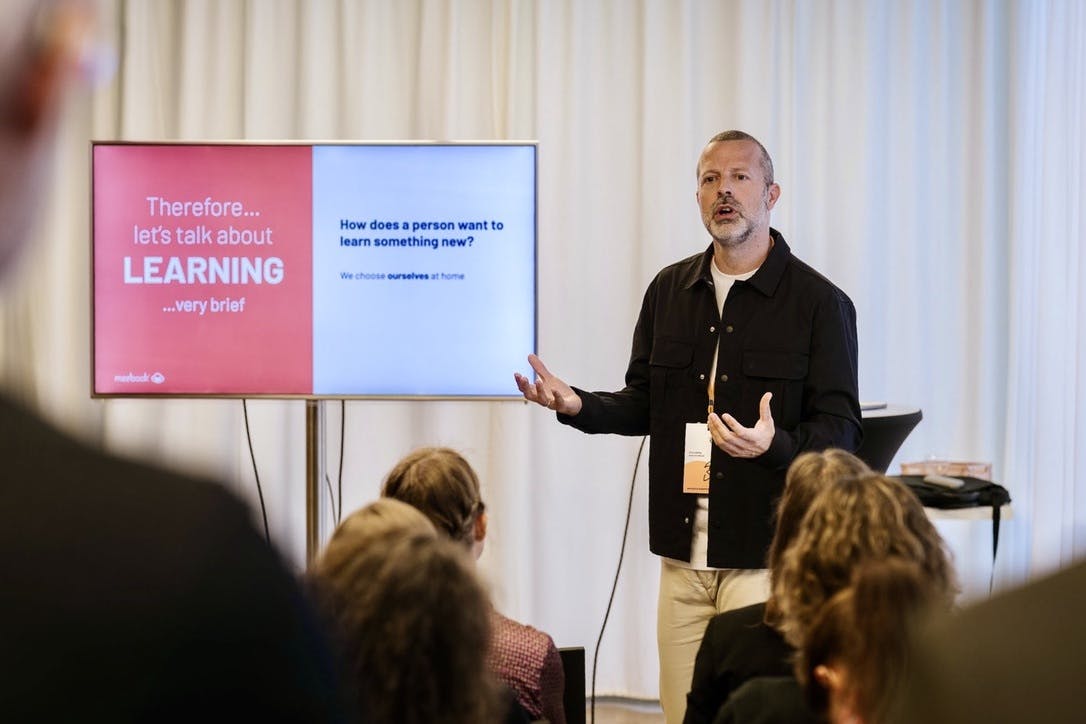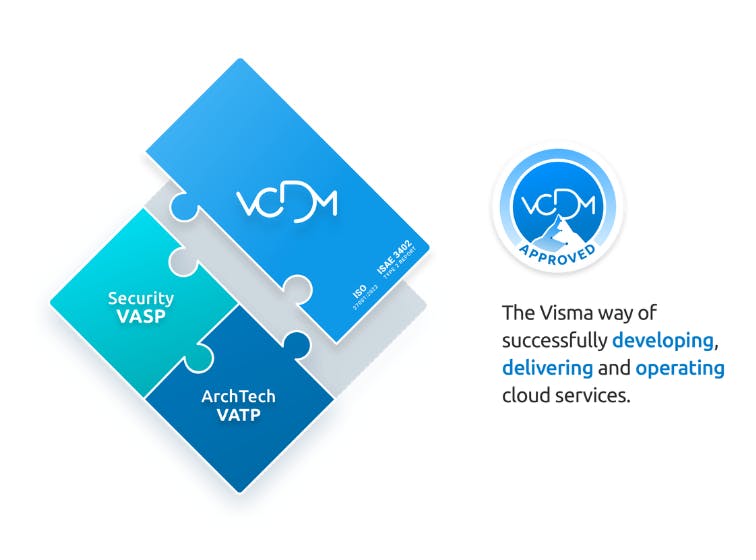Article
Leading with agentic AI: Why every business needs a bold AI ambition now

19/6/2025
min read
AI
The most successful technology transformations don’t just optimise how we work – they redefine what’s possible. As with the SaaS revolution before it, AI is reshaping the fabric of modern business. But unlike SaaS, the AI wave is moving exponentially faster. Every company – regardless of industry – now faces a stark choice: move boldly with AI or risk falling behind.
At Visma, we see AI as a strategic lever for long-term competitive advantage. With AI already integrated into 155 Visma products across 80+ business units, AI is not just another tool in the box – it’s the foundation for smarter, more scalable operations. From faster decision-making to streamlining complex workflows, AI enables us to move with speed, precision, and confidence toward real business outcomes. But to unlock its value, organisations must set ambitious targets to deliver practical value to customers and employees.
"You need to aim high to get anywhere.”
The path to agentic AI
We talk about AI in terms of automation, but the next frontier is agency. Agentic AI doesn't wait for prompts – it takes initiative within defined parameters, learns from outcomes, and collaborates with human teams. It’s the difference between an AI that answers questions and one that drives business processes.
“The AI transformation is a do or die. Either you join the transformation, or you will be outcompeted."
With a proven track record of delivering superior customer-centric products, Visma is laser-focused on helping businesses concentrate on what truly matters. Our AI capabilities are already helping customers eliminate repetitive tasks, streamline operations, and surface insights faster than ever.
But we’re just getting started. Our ambition is clear: to lead in the agentic paradigm – where the greatest value lies – not just for us, but to empower you, our customers, with more time to focus on delivering real impact.
The key ingredients – how do we get there?
1. Leadership that leads
A bold AI vision starts with leadership that understands its value as a strategic growth driver. Leaders must put AI firmly on the agenda, with clear, measurable goals. That means embedding AI into core strategy, investing deeply in talent, and fostering a culture that values curiosity, speed, and decisiveness.
Every successful transformation we’ve seen has had buy-in from the top-down. From the shift to cloud computing to the move towards API-first ecosystems, leaders that recognise the importance of a clear roadmap for what AI should achieve for their business, have capitalised on this moment.
With great power comes great responsibility. As we expand our AI footprint, leaders must focus on embedding safeguards at every level – strong security, ethical oversight, and built-in transparency.
2. Encouraging experimentation
Unlike startups, Visma has scale and resources, and that’s a strategic advantage. Our decentralised, entrepreneurial structure provides the resources for developers and founders to take calculated risks, test ideas, and grow fast through shared learning.
A willingness to experiment reduces the risk of falling behind. It keeps our tools sharp, our teams upskilled, and our tech stack evolving. We’ve built a culture that supports this, through initiatives like Code Jams where developers can try new tools, fail fast, and share what they learn. Not every project will succeed, but each one makes us stronger and more resilient.
Ultimately, the biggest risk may be doing too little – the underutilisation of AI as I like to call it. If you’re too careful, you might think you’re being safe – but in reality, you’re falling behind.
3. Upskilling & unlocking productivity
Automation is transforming work, especially for developers and frontline teams, making upskilling essential. For developers, AI acts like a junior coder – useful in handling repetitive tasks but needing guidance – allowing engineers to focus on complex challenges and boosting job satisfaction.
Across the board, AI is driving job satisfaction and professional growth. In marketing, sales, and customer service, AI automates content creation, personalizes customer journeys, handles prospecting, lead qualification, coaching, and follow-ups. This frees up teams to focus on strategic, complex tasks while AI-powered 24/7 support boosts customer satisfaction. Across these functions, AI supports and upskills – rather than replaces – our people.
Looking ahead
With a sevenfold increase in AI-native startups since 2020, the next wave of competition is coming from companies built with AI at their core. To stay ahead, established businesses must clear, bold AI ambitions that match this agility.
The AI agent market is projected to grow rapidly (43-46% CAGR). True end-to-end autonomy is on the horizon. In the near term, success will come from targeted task automation and human augmentation.
At Visma, we’re all-in on that journey – not just because we believe in the potential of AI – but because it’s essential to the future of business. Now is the moment for ambition. Those embracing agentic AI today will lead their industries tomorrow.

About the episode
T. Alexander Lystad
Alexander is Chief Technology Officer at Visma. Since joining in 2012, he has established a mature foundation based on DevOps, public cloud, and continuous delivery to improve engineering performance. His current priority is leveraging this foundation and AI to transform both how Visma does product development and what kind of products Visma is able to offer its customers.
Voice of Visma
Welcome to the Voice of Visma podcast, where we sit down with the business builders, entrepreneurs, and innovators across Visma, sharing their perspectives on how they scale companies, reshape industries, and create real customer value across markets.
T. Alexander Lystad
Alexander is Chief Technology Officer at Visma. Since joining in 2012, he has established a mature foundation based on DevOps, public cloud, and continuous delivery to improve engineering performance. His current priority is leveraging this foundation and AI to transform both how Visma does product development and what kind of products Visma is able to offer its customers.

























































































































































































































